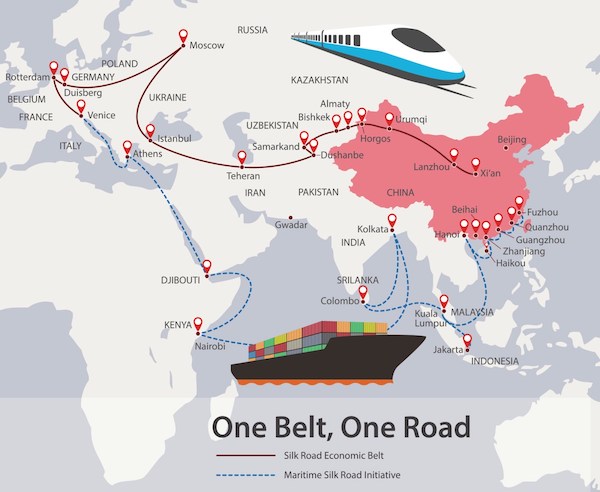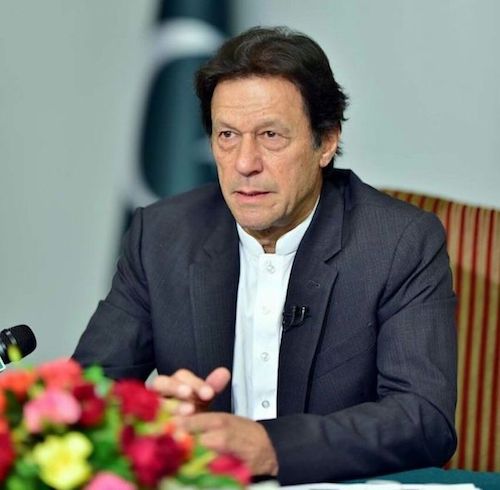As the newly formed Imran Khan Government comes to terms with running the affairs of the State, there is a dire need for optimism and resolve. These are unprecedented times with new battlefields inside and outside the borders. The people of Pakistan are coming to realize what wrongs have been committed in the past and the PTI Government is setting new standards and preparing to defend the people on all frontiers. Change is always painful but it is much needed. For the first time in the history of Pakistan the Government is striving to achieve true prosperity and progress. Although, there is a considerable ground to cover, trial and error is bound to cause frustration among the masses but in the broader perspective Pakistan is to come out as the winner. If one has not lost hope during the reign of previous governments, there is simply no logic to lose it now.
At this point in time, it would be most appropriate to take stock of the past before one can pass an overarching judgment on the future. From the early 1950s, Pakistan found itself in a cross fire between the United States and the Soviet Union. The Cold War was raging and shadows of the Second World War loomed over emerging countries like Pakistan. It can be argued that perhaps Pakistan chose the wrong side by siding with the United States and that the foreign office of Pakistan failed to maintain a balance. The Western bloc converted Pakistan into a military fort against Moscow. In return, there were huge investments that poured into infrastructure, military and economic framework, coupled with the military regime of Ayub khan, the country prospered building dams like Mangla, Tarbela and other critical projects. This proposition was to repeat itself time and again.
Pakistan continued to be a key player in the global Great Game. Political upheavals and wars of 1965 and 1971 left the country in a bewildered state. Demoralized, mismanaged and dismembered, the country was shaken to the core till 1979. This time it was the Soviet Invasion of Afghanistan that brought Pakistan under the global lime light yet again. Under the military regime of General Zia, the country received a tremendous amount of aid and foreign investment. The foreign office failed once again to secure national objectives before playing into the hands of the United States. Pakistan took full part in providing the mujahedeen in Afghanistan with human and non-human resources. Refugees from Afghanistan changed the social and political canvass of the Pashtun belt and the Northern regions. General Zia strengthened his rule and Islamized the nation for his own ulterior motives. The Government could not reap the benefits of foreign funding and attention, and so, when the dust had settled, the only loser was the impoverished community of Pakistan while the rulers faded away into the oblivion.
The common man was never fully represented. It can be theorized that the free flow of information through media and electronic communications coupled with a peaceful handover of political power between two elected Governments, kick-started the dead engine of democracy. As a result of this concoction, a third political entity came into being, one that was headed by a man who rose from the ranks of a common man to become the captain of the cricket team of Pakistan. Imran Khan is then, a natural outcome to the due process of equality, freedom and progress. He possessed the qualities of a leader, had ample knowledge about the suffering of the poverty stricken Pakistanis and he was able to provide a banner where actual leaders could gather democratic forces. PTI is the result of all sacrifices made in the name of democracy and in opposition to absolute dictatorship. It alludes to the progress of mankind that has been made in the name of equal participation in decision making. The interruptions of dictatorial rule and aristocratic power play did slow the process of democratic forces in the country, but the foundation of electoral selection did take root.

The One Belt One Road plan is set to expand China’s trading volumes exponentially. The land route of OBOR begins with CPEC and Pakistan is the initial key towards the success of the silk trading route. President Xi Jinping confirmed the collaboration saying, “attach great importance to China-Pakistan relations and am willing to work together with the prime minister to strengthen the China-Pakistan all-weather strategic partnership and build a new era of China-Pakistan destiny” The highest echelons of Chinese leadership are working with their Pakistani counterparts, a huge contrast exists between funding from the United States from that of Chinese. The United States provided funding to alter military spending and supporting a military dictator (in most cases), while the investment scheme from China is specifically aimed at industrial development, technology transfer, infrastructure upgradation and realizing the potential of Gwadar as a deep sea port. This plan is not for ensuring domination but mainly at keeping the economy at a level where the most populous country in the world can support its progress and maintain stability.
China wants to maintain its GDP, which it has attained through tough reforms and centralized policies since the 1960s. As the world enters into a recession, the only way China can continue to acquire surplus resources and profits for its exporters, is through lowering costs with OBOR and CPEC. Also, the United States has recognized a future competitor and it is actively competing with Chinese economy on all fronts. The South China Sea and South Korea are active issues that are engaging China and United States in a direct struggle. If China is to succeed in becoming the largest and the clearly dominant economic power in the world, OBOR and CPEC are bound to become the frontline between United States and China. At this juncture, Pakistan will need to tread carefully. Donald Trump has made it a point that the IMF must look into Pakistan’s cooperation with Chinese debt-servicing before issuing loans. At the helm of affairs is the PTI Government. This time, there seems to be no friction between the army and the civilian government. It is all that can be hoped for.
Finally, it is pertinent to notice that when the free electronic media and social circles criticize and paint a gloomy picture against Imran Khan, they fail to connect the dots with the past. A country that has lived under aristocratic feudals and defacto Army Generals cannot justify negativity against a fresh mandate of good governance. PTI is the management of the youth, a people’s voice and one of change. Although, perfection cannot be implied here as many elected representatives of PTI are former members of the failed PPP and PML-N, it can only be perceived that these factors will be weeded out in due time. As time passes, Pakistan will overcome its internal and external front lines. The new generation has an icon to study and copy in their own time. Honesty, transparency and dedication with a little hope are all we need. From a political and geo-strategic approach, Imran Khan and his team of relatively inexperienced but honest party members are far better than a feudal aristocrat or an unconstitutional Army General holding the Federal capital of the country which is fighting a battle for survival.




